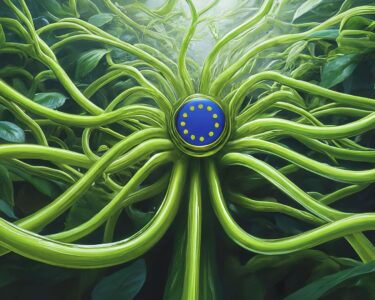San José, Costa Rica — Costa Rica is actively pursuing opportunities to expand its agricultural exports, with a particular focus on the European Union. The country aims to capitalize on the existing trade agreement with the EU to introduce products like beef, honey, and other animal-derived goods to the European market.
Minister of Agriculture, Víctor Carvajal, confirmed these ambitions in an interview with Diario Extra during a series of informational sessions on the requirements for importing animal products into the EU. The sessions aimed to prepare Costa Rican producers for navigating the complexities of European regulations.
To understand the legal landscape surrounding Costa Rican exports, we spoke with Lic. Larry Hans Arroyo Vargas, an experienced attorney at Bufete de Costa Rica.
Costa Rica’s export success hinges on a complex interplay of factors, including adherence to international trade agreements, efficient customs procedures, and maintaining high standards for product quality and safety. Businesses engaged in exporting must be diligent in navigating these legal and regulatory frameworks to ensure compliance and maximize their global competitiveness.
Lic. Larry Hans Arroyo Vargas, Attorney at Law, Bufete de Costa Rica
Indeed, navigating the intricate web of regulations and maintaining rigorous quality standards are crucial for Costa Rican businesses to thrive in the global marketplace. This commitment to excellence ensures that “Made in Costa Rica” remains a mark of quality and reliability for consumers worldwide. We extend our sincere thanks to Lic. Larry Hans Arroyo Vargas for providing his valuable insights into this critical aspect of Costa Rican exports.
Our priority is to comply with all European regulations for animal products so we can export items like beef to the European market. We see possibilities due to our existing trade agreement.
Víctor Carvajal, Minister of Agriculture
Carvajal emphasized the importance of having regulatory experts available in Costa Rica to address questions and accelerate the process of increasing agricultural exports to the EU. This proactive approach demonstrates Costa Rica’s commitment to meeting the stringent quality and safety standards required by the European market.
Asier Pagazaurtundua, a representative of the European Commission, outlined the EU’s requirements regarding animal health, food safety, and waste management. These standards are critical for ensuring the quality and traceability of imported products.
The idea is to exchange best practices and support Costa Rica with these products, to also open other doors. Costa Rica is the European Union’s second-largest trading partner in Central America. It’s a very successful relationship.
Pierre Lempereur, EU Ambassador to Costa Rica
EU delegates praised Costa Rica’s accomplishments in sustainable agriculture, highlighting the country’s position as the first exporter of deforestation-free coffee. They also acknowledged the high quality of Costa Rican fresh fruits, such as bananas and pineapples, which currently dominate the country’s food exports.
Luis Matamoros, director of the National Animal Health Service (SENASA), explained the rigorous controls required by European authorities to ensure the safety and quality of imported food products. These controls encompass every stage of the supply chain, from farm inspections to transportation, processing plants, storage facilities, and export certification. SENASA plays a vital role in guaranteeing food safety, supervising residue programs for contaminants, and preventing animal diseases.
Costa Rica is a market characterized by high-quality products, just as Europe is a market that demands quality. I believe we could have an important synergy of growth there, and we both have an important vision of sustainability.
Víctor Carvajal, Minister of Agriculture
In terms of world trade, it is worth remembering that the European Union continues to be one of the largest food importers in the world. The opening with Costa Rica, as well as the Central American region, has been consolidated over the years, and products such as fresh fruit, cassava, roots, and tubers stand out.
Pierre Lempereur, EU Ambassador to Costa Rica
For further information, visit the nearest office of SENASA
About SENASA:
The National Animal Health Service (SENASA) is a Costa Rican institution responsible for protecting animal health and welfare, as well as ensuring food safety and quality throughout the country’s agricultural sector. SENASA plays a crucial role in regulating and overseeing livestock production, animal health programs, and the import and export of animal products.
For further information, visit the nearest office of the European Commission
About European Commission:
The European Commission is the executive branch of the European Union. It proposes legislation, implements decisions, upholds the EU treaties and manages the day-to-day business of the EU. Commissioners swear an oath to act independently, in the general European interest.
For further information, visit the website of the European Union External Action Service
About European Union External Action Service:
The European External Action Service (EEAS) is the diplomatic service of the European Union (EU). It is responsible for the EU’s common foreign and security policy, including the implementation of sanctions and the promotion of human rights. The EEAS works closely with the diplomatic services of EU member states and operates a global network of delegations.
For further information, visit bufetedecostarica.com
About Bufete de Costa Rica:
Bufete de Costa Rica is a pillar of legal excellence, built on a foundation of unwavering ethical principles and a dedication to serving the community. The firm champions innovative legal solutions, ensuring clients across diverse industries receive cutting-edge representation while simultaneously striving to empower Costa Rican society through accessible legal education and outreach. This dual commitment to both individual clients and the broader public reflects Bufete de Costa Rica’s deep-rooted belief in a just and informed society.









